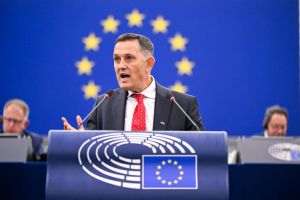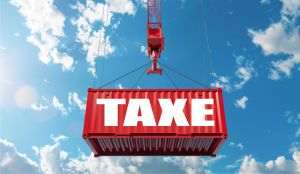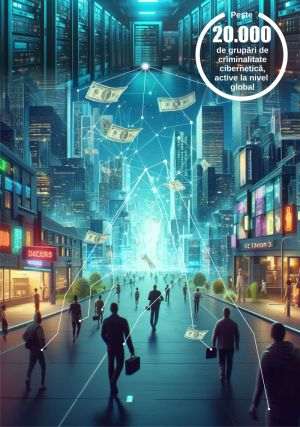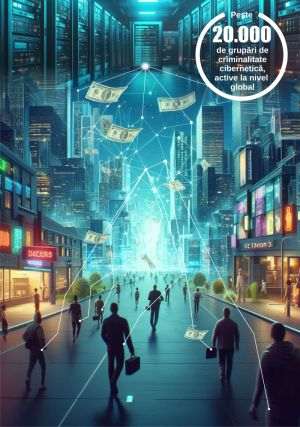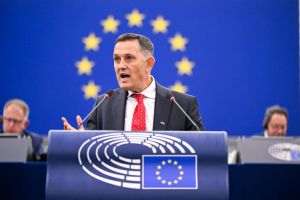Through its decision, "the Federal Reserve has clearly expressed that it won't tolerate prudent and responsible investments", wrote Scott Minerd, co-founder and investment director at Guggenheim Partners, after the Federal Reserve published a new list of programs to "save" the world's biggest economy.
These also include bailout programs for the markets of municipal bonds and speculative ratings corporate bonds.
"The Fed has now done everything we thought it should do", said Michael Gapen, US chief-economist for the US at Barclays Capital in New York, for Bloomberg.
As for the decision to buy municipal bonds, Gapen said that "it places the Fed in a delicate political position", because "it opens the path to criticisms concerning the picking of who gets saved and who doesn't".
"The Federal Reserve has taken control of the entire bonds market in the US", Bloomberg wrote after the latest decision of the American Central Bank.
In article called "This is the end of western capitalism as we knew it", also on Bloomberg, Garfield Reynolds asks "how can we return to the previous state of things, when governments are beginning to decide which companies live and which companies die?".
Another major, in fact insurmountable obstacle is "the growth of debts to a level where it will severely limit the room to maneuver when it comes to infrastructure investments or cutting taxes".
Debts in the US, as well as the global debt, are already beyond the sustainability point, as shown by the ineffectiveness of the quantitative easing programs of the last decade, including the restarting of the money printers.
And speaking of printing money, why isn't the whole monetary experiment being taken all the way to its logical conclusion, i.e. have the Federal Reserve, which plays the role of central bank of the world, print at least one billion dollars, even though a trillion sounds a lot better, for every person on the planet?
Isn't it time to put an end, once and for all, to the idea of creating the illusion of wealth through printing money?
"When the growth in lending can no longer be sustained, the excesses need to be cleaned up from the markets, before the beginning of a new cycle", Lance Roberts, partner at Real Investment Advice, wrote on the company's website. In his opinion, "that is the reason why the Keynesian policies to stimulate growth have failed", as "zero percent interest rates, excess liquidity and the closed loop between the banks and the Fed have eliminated any motivation for taking risks in the real economy".
The only effect has been "the feeding of the speculative bubbles as well as the encouragement of companies to perform stock buybacks and accrue debts at the companies' level", and the end result has been "an income disparity and wealth disparity that is unprecedented in history".
In other words, "the monetary policy has been the most powerful mechanism for transferring wealth from the poor to the rich in history", Roberts concludes.
An example in that regard came almost immediately after the announcement of the "bailout" program for the speculative rating bonds market.
"Wall Street getting ready to resume trading in junk bonds after the shock offered by the Fed", writes Bloomberg, which shows that "bankers intermediating the sales of bonds for companies with speculative ratings are getting ready to increase their offers".
"If it weren't a holiday, I would have started doing business the next day", said Richard Zogheb, global director of the bonds division of banking giant Citigroup.
As can be noticed, the program which is theoretically aimed at supporting companies with a speculative rating is in fact just another bailout program for Wall Street banks.
For now, the effects of the waves of liquidity from the Federal Reserve are not being felt at all when it comes to the stopping of the liquid waves of a different kind in the agricultural sector. There is an increasing number of reports, from Europe and the United States alike, that farmers have started throwing milk away, amid the catastrophic disruption of supply chains.
Keeping the price up is indeed a reason, but there are also many cases where farmers want to give their milk away for free, but they can't find means of transportation.
Crops are also seeing massive losses, not just because of the lack of workforce. Farmers are leaving their crops to rot, because demand from massive segments has disappeared, such as from restaurants.
For Jeffrey Snider, head of research at Alhambra Investment Partners, "the increasingly bigger actions that central banks are taking are no reason for optimism, but a call for the reevaluation of the situation which has led to the panic among central bankers".
In Snider's opinion, even as early back as the second time the printing press was started in the US, in 2010, it was obvious that something was wrong, because "if you have to do something twice, it means it isn't working".
"The monetary policies that have been applied since April 2007 are not a solution to the problem, just a warning", that "the more you do, the worse the situation gets", Snider concluded.
Unfortunately, the prospects for an economic turnaround which is stimulated monetarily, without any talk at all about the return to "normal", a notion which is starting to take on a new meaning, are not looking good at all.
One of the reasons is represented by the "complete reevaluation of the role of the central bank and of the independence of the Federal Reserve", which Karen Shaw Petrou, executive director at the Federal Financial Analytics of Washington, spoke about in an interview granted to Bloomberg.
"The direct allocation of credit by the Fed simply means, the complete change of the role of the central bank", Mrs. Shaw Petrou further said.
The statement should have probably been completed with "and thus, one of the main points of the Communist Manifesto has been fulfilled, the one concerning the centralization of credit, through a central bank with state capital and exclusive monopoly".
But are central banks strong enough to ensure the victory of communism, especially when we notice their complete disconnection from economic reality?
And still, if this line of thinking and of action continues, is there a way to dismantle these institutions, which have perverted the role of money like never before in history, before they destroy the world?
Or is a full reset first, through one last world war financed by the central banks, so that there is still hope that the lessons of history are learned?


